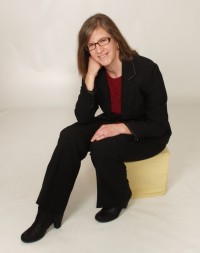In celebration of our recent 20th wedding anniversary, my husband and I spent a romantic (read: “without kids”) three days in the beautiful mountains of western Pennsylvania. We hiked, kayaked, hiked, and hiked some more. It was warm and fairly muggy, but breezy enough to make it pleasant. The smell of the pines, the sounds of the forest and river and their creatures, the pleasant cooling raindrops on our skin (just enough to soothe, but not enough to drench), the beauty of the colors surrounding us, and the just-tired-enough-ness of our muscles, combined with nightly soaks in our room’s fireside Jacuzzi to allow stress to slip away quite nicely. And my husband knows me well enough at this point that the fact that I had brought along Lysol wipes to use on said Jacuzzi tub prior to our first night’s soak evoked in him only a slightly bemused smile.
Cell coverage in the area was very limited, so we were not bombarded with constant texts, e-mail notices, or Facebook updates. There was no TV in our room, so we sat out on the balcony at night (second story – high enough we didn’t have to worry about hungry, wandering bears) and smelled the faint wafts of smoke from a nearby fireplace.
And there was no clock in our room, nor was there any clock in any of the public areas of the rustic, log-constructed lodge.
Was this lack of official timekeeping devices a throwback to earlier, simpler times, or a nod to the fact that we were in the woods and close to nature? I don’t think so – that wouldn’t be consistent with in-room Jacuzzis and gas fireplaces. I think the clock-less-ness of the place was a symbol of both luxury and freedom.
In my own life, I frequently do not have the luxury of time nor freedom from schedules. With my client and meeting schedules, my husband’s work schedule, the kids’ school, sports, and music lesson schedules, deadlines, committee meetings, community events, social engagements, kids’ rehearsals and concerts – our family calendar looks like a Jackson Pollock painting.
So the lack of a clock makes a powerful philosophical statement: you are on vacation and are here to relax. You do not have a schedule. Go to bed when you’re tired. Eat when you’re hungry. Of course this is not consistent with the lodge’s policy of having you sign up for a specific time slot for breakfast each morning, but to paraphrase Emerson, to demand consistency is to lack imagination. Our creative response to this discrepancy was to ignore the rule and show up whenever we wanted to.
Of course our cellphones have clocks and alarms on them, and these work even when there is no cell signal and the phones are on “airplane mode” to conserve battery. But you have to purposefully look down at your phone and turn on the display to see the time, and you must purposefully set any needed alarms. We chose not to set any alarms. We went to bed when it was dark and we were tired. We got up when we felt rested, which turned out to be about 8 hours after going to sleep.
Certain health conditions can tie you to a clock a little more – someone with esophageal reflux needs to time their eating so that it’s not too close to when they lie down. Someone who uses insulin needs to time their injections and meals precisely. Anyone on medications needs to time them consistently and evenly. But aside from clock-dependent requirements such as these, it does a body good to lose the watch for a bit and listen to your own internal clocks.
I wonder how long it would take to find your own time groove. I wonder if a loss of clocks would decrease overeating – there certainly wouldn’t be any “it’s lunch time, so I’d better eat a lot now, since dinner isn’t for several hours.” I wonder if we’d get the ideal amount of sleep, with our own internal signals and a little input from the sun.
If anyone knows of a study like that going on, please let me know – I’ll volunteer!

Love your read! I wish you and a happy and healthy 20th! Sounded wonderful!!
Xxoo
Thak you so much!